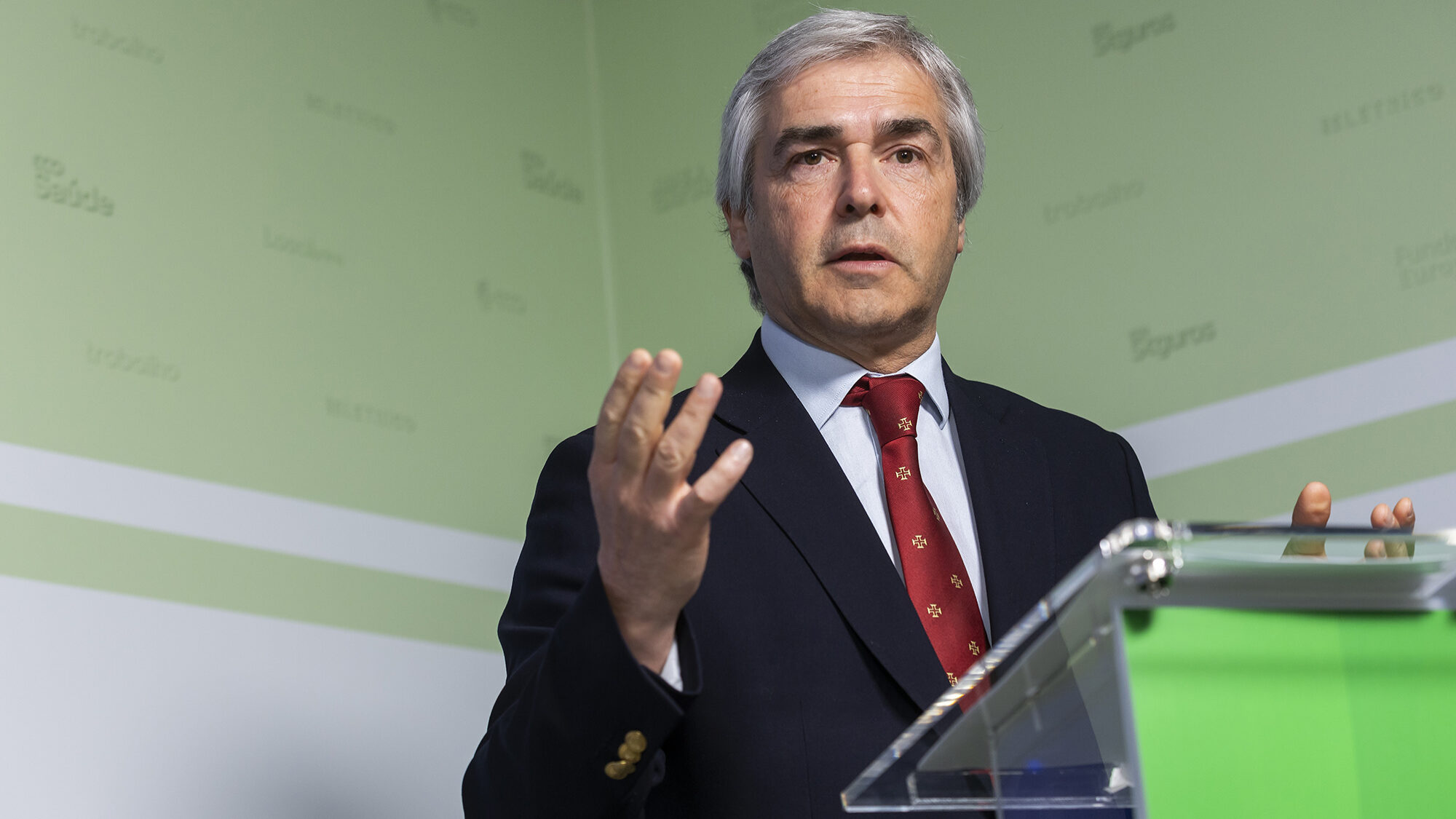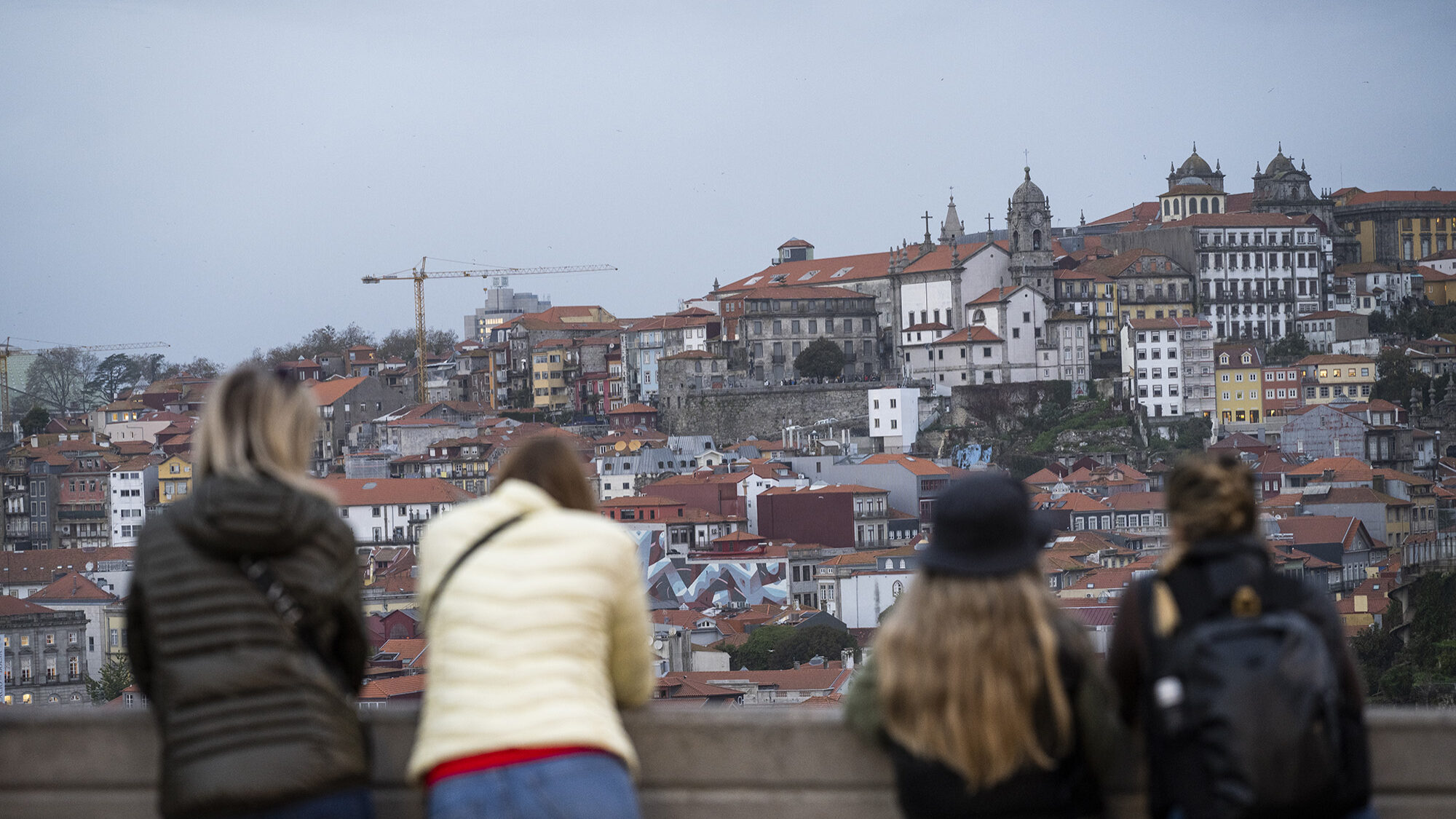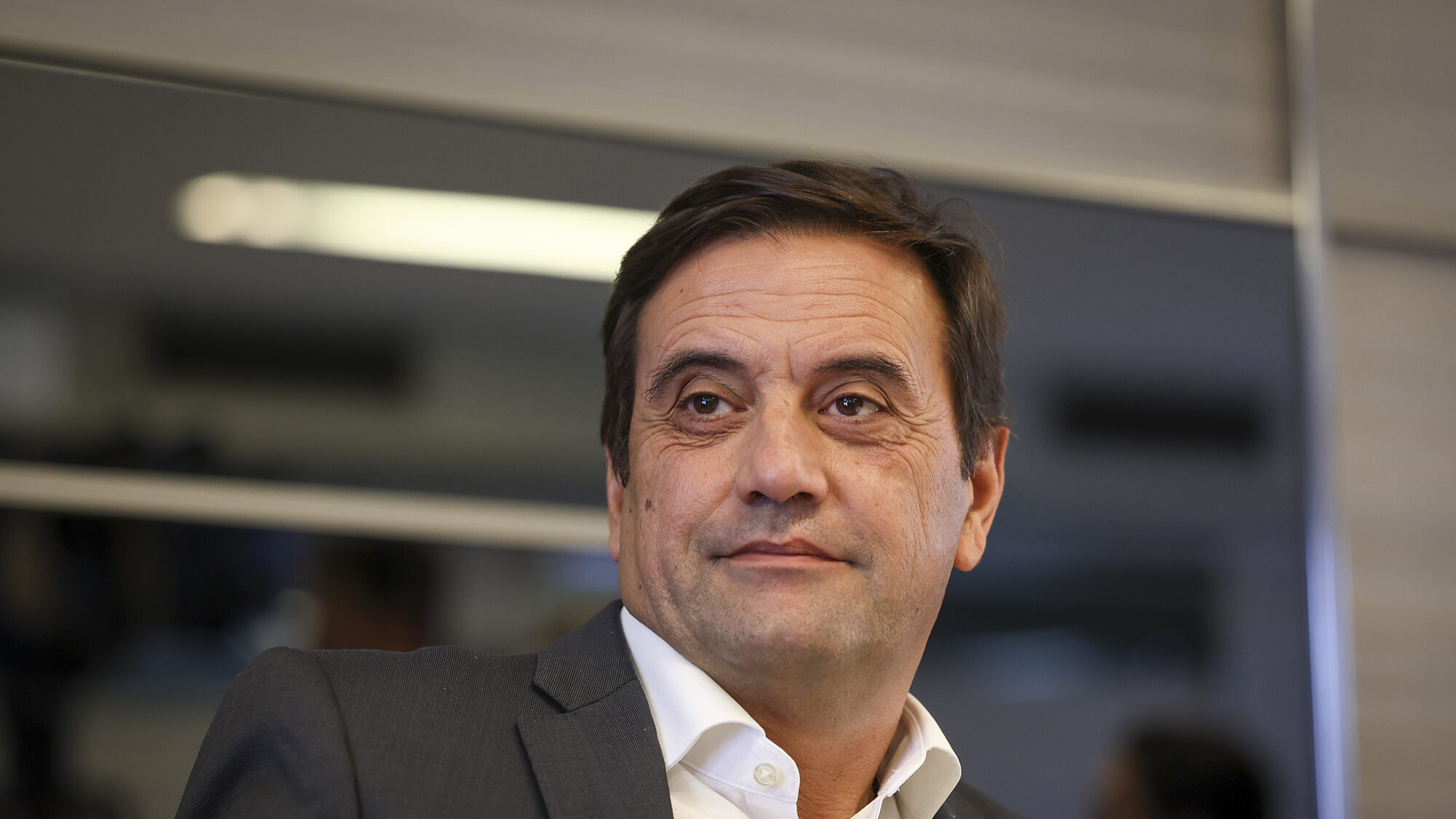Social Democrats win local elections and take control of the country’s five largest councils
The PSD, led by Prime Minister Luís Montenegro, won the local elections across almost the entire country. Among the night's defeats, the Communists were beaten by the far right in Lisbon by 11 votes.
The Social Democratic Party (PSD) won Sunday’s local elections, something it had not done since 2009. The party leader and Prime Minister, Luís Montenegro, highlighted each of the aspects in which it was victorious: more votes and a greater number of parishes, municipalities and mandates. It also won in the five largest municipalities in the country.
In a context of victory in most councils, the recovery of the presidency in Porto, Sintra and Vila Nova de Gaia, as well as the maintenance of power in Lisbon — where polls pointed to a technical tie — allow the PSD to claim victory unequivocally.
The greatest relief will have come to the PSD district headquarters in Porto (where Montenegro followed the results) from Lisbon. “They want us to be even more Moedas”, said the re-elected president of the capital in his speech, before chocolate coins were thrown around the hotel room where the entourage gathered.
However, there is still no majority in the right-wing coalition, which could be achieved with the addition of the Chega representative. Even if there is a “no means no” in the Republic, this support from André Ventura’s party representatives is sufficient for majority governance in all five of the country’s main councils. Lisbon, Sintra, Gaia, Porto and Cascais, all with Social Democratic victories without a majority, could have their governability assured with the support of Chega councillors.
With a veiled reference to the party leaders who spoke earlier on election night – “practically all of them presented themselves as winners”, he pointed out – Luís Montenegro did not want to outline a post-election scenario of governability, namely setting any “red lines” for André Ventura’s party.
This is something that José Luís Carneiro, secretary-general of the PS, not only rejected, but also clearly demanded from his local councillors even before the elections. He demanded that the support of councillors elected by Chega be excluded from socialist governance. The PSD’s principle, professed by the party’s president on Sunday, is respect for local autonomy, meaning that each local authority will have the autonomy to form the majorities it sees fit in the councils.
Pedro Nuno Santos’ successor in Largo do Rato was the voice of a defeated PS. Even without contesting the losses across the country, he said that “the PS is back”. In his first election as party leader, Carneiro denied the “structural erosion” that some had predicted. “I remember that three or four months ago, there were those who claimed that the PS would lose 79 councils, which would leave us with 70 councils”, he recalled.
In a speech in which he tried to soften the defeat, countering predictions of the party’s collapse, he recalled the victories between 2013 and 2021: “in the fourth election, the PS, even though it is in opposition in the country, is neck and neck with the Government in terms of the number of councils”. This is despite the fact that the reference to the Executive is inappropriate, as the parties that supported the Government stood for election and, in some cases, such as Lisbon, Porto and Sintra, for example, the Liberal Initiative also stood.
Having reached these elections in first place in local government and leading the associations of municipalities (ANMP) and parishes (ANAFRE), the PS consoled itself with being “neck and neck in the Porto and Braga councils” and having competed “to win” those of Lisbon and Porto. “This is extraordinary in light of the results we had three months ago, when some even claimed that the PS had entered into electoral erosion and that what happened to the French Socialist Party would happen [in Portugal]”.
In fact, until this Sunday, the difference in the municipal vote count between the two parties was “very significant”, as Luís Montenegro pointed out in his victory speech. Now, says the Prime Minister, the PSD is ‘the largest’ in local government, in regional government (it governs the Azores and Madeira) and in the Assembly of the Republic.
But not everything was positive for the orange camp. Among the PSD’s defeats is the Albufeira City Council, one of only three municipalities where Chega won. This is quite different from the damage that many feared, that this growth could extend to dozens of municipalities.
André Ventura, who began the evening with an effusive speech, made much more measured statements after the votes were counted. “I have always said that there are no parties in power without being local parties. Today we took that first step, but we are still far from the goals we had set for ourselves. This party no longer fights to come second or third, this party fights to win. Today we did not win, but we will fight to win.”
In fact, at the end of the count in the 308 municipalities, Chega was not even able to match the CDS, which retained its six councils. And even less so the CDU, although it inflicted a hard-to-swallow defeat on it: it came third in Lisbon by 11 votes. This slim advantage allows it to add two councillors. The CDU is reduced to João Ferreira.
It should be remembered that Ventura even assured that he would surpass the communists. In reality, he ended up with the same three councils as a short-lived party, the PRD, exactly 40 years ago.
Following Ventura’s own statement that “there are no parties in power other than local parties”, the second position in Parliament obtained in the 18 May legislative elections (with more than seven times the votes of the CDU) did not materialise into local power. In the Algarve, a region where it has twice won the legislative elections, the party won only one council out of 16. In addition to MP Rui Cristina in Albufeira, it also won in Entroncamento and in the Madeiran municipality of São Vicente.
The other side of the PS/PSD duel
Election night cannot be seen as a total success for the PSD or an absolute failure for the PS. The Socialists managed to take three important district capitals from the PSD, namely Coimbra, Viseu and Faro. The municipalities of Beira, two of the 26 in the country with more than 100,000 inhabitants, fell with a bang.
Coimbra had been won in 2021 by a large coalition led by José Manuel Silva, and now has former minister Ana Abrunhosa (PS/Livre/PAN) as its president. Viseu, for its part, was governed by Fernando Ruas, whose defeat, after an absolute majority in 2021 and 24 years of leadership between 1989 and 2013, comes as a major surprise. Socialist João Azevedo managed to break a 36-year cycle of PSD rule in the council, in a narrow but significant victory by 800 votes.
The PS now has nine district capitals, and Braga was less than 300 votes away in a universe of over 100,000 voters. It has absolute majorities in Bragança (which was PSD), Leiria, Viana do Castelo and Vila Real. Faro was “taken” from the PSD. In Viseu, the Socialists won by less than 1,000 votes out of 57,000 over Fernando Ruas. In Évora, the victory was by an even narrower margin of 156 votes out of 27,000 voters, against the same party.
The Social Democrats retain Lisbon and Braga, win Porto and Beja, and continue to hold an absolute majority in Portalegre and a relative majority in Santarém, where João Leite had to face his socialist former neighbour from Almeirim.
In the south, there was a notable “exchange” between the PSD and PS in Faro and Beja. In the case of the Algarve capital, the socialist António Pina moved from Olhão, where he had reached his term limit, to defeat Cristóvão Norte, after the term limit reached by the social democrat Rogério Bacalhau. However, Pina did not achieve a majority, winning four seats, which was insufficient to overcome the sum of the three seats won by the PSD/CDS/IL/PAN/MPT and the two won by Chega.
In Beja, the victory of the Social Democrats was an unprecedented achievement for the right. Never before had the capital of Baixo Alentejo broken away from the two-party system between the PS and the CDU. Nuno Ferro broke with this reality that had lasted since 1976. In addition, Chega garnered enough votes for one seat.
At the outset, the PSD had the advantage in the district capitals, but the PS managed to even the score. The CDU no longer presides over any of these municipalities, and the independents, who had Guarda, added Setúbal. Although Montenegro claimed this victory for his party, as in Santiago do Cacém, where the independent who ‘stole’ the council from the CDU was supported by both the PSD and the PS.
In the capital of Sado, Dores Meira won and helped render her former party, which she had belonged to until a few months ago, practically irrelevant. For the CDU, this was a day of major defeats, despite the PCP/PEV coalition managing to win some councils. However, the loss of two district capitals, Évora and Setúbal, falling from first to third and fourth place, respectively, cannot be ignored. Across the country, another major defeat is the failure to elect a councillor to the Porto City Council. Never since 1976 has the CDU been left without a single seat in Invicta.
Still in Setúbal, former mayor and CDU activist Dores Meira, who in 2021 reached the 12-year limit for the presidency and ran for the party in Almada, returned to run as an independent. In a move that, against the wishes of the local PSD structure, had the support of the national headquarters, Dores Meira, now independent, regained the municipality that had been led by the CDU for 24 years.
Half of this period was under her responsibility, four under the outgoing president and the rest under a mayor who, this year, appeared as a supporter of the PS. With this division of forces between communists and their now disaligned former comrades, the CDU’s strength was not enough to elect André Martins for a second term.
To make matters worse, the CDU won 11.4% in Setúbal, a third of the vote it won four years ago. It was even overtaken by Chega, despite André Ventura’s party being forced to change its candidate on the last day allowed by law, in mid-August.
In Alentejo, the decline had other protagonists. The Alcácer stronghold fell. In Évora, the return of João Oliveira, MEP elected to Brussels last year, was marked by a resounding failure — the Évora native did not even reach 16%.
Among the other parties, the CDS managed to hold on to the six councils it had won under the party’s previous leadership. Added to this were the winning coalitions in the big cities, which allowed Nuno Melo to present himself as a winner.
In Madeira, the JPP retained the council where it began in 2013, still as a movement, Santa Cruz.
On the left, the Left Bloc stands out, having practically disappeared from local government after falling from 12 to four seats in 2021.
On Sunday, voters chose the teams that will govern and oppose in 308 municipal councils, 308 municipal assemblies and 3,221 parishes.
In total, with all the votes counted, the balance is as follows: 136 councils for the PSD (of which only 78 are solo); 128 for the PS (of which 126 are solo); 20 for Independents; 12 for the CDU; six for the CDS; three for Chega; two for Nós Cidadãos and one for the JPP.




